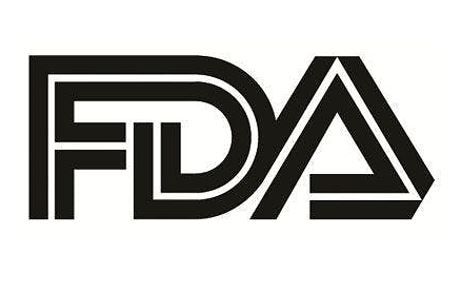- Clinical Technology
- Adult Immunization
- Hepatology
- Pediatric Immunization
- Screening
- Psychiatry
- Allergy
- Women's Health
- Cardiology
- Pediatrics
- Dermatology
- Endocrinology
- Pain Management
- Gastroenterology
- Infectious Disease
- Obesity Medicine
- Rheumatology
- Nephrology
- Neurology
- Pulmonology
FDA Accepts 2 NDAs, Grants Priority Review for Crinecerfont for Pediatric, Adult CAH
Neurocrine Biosciences made the announcement and said, if approved in December, crinecerfont will be the first new treatment and treatment approach to CAH in 70 years.
The US FDA today accepted 2 New Drug Applications with Priority Review designation for crinecerfont, a novel investigational drug being developed for treatment of children, adolescents, and adults with classic congenital adrenal hyperplasia (CAH), according to biopharmaceutical company Neurocrine Biosciences.1

A PDUFA date of December 29, 2024, has been set for the oral, selective corticotropin-releasing factor type 1 receptor (CRF1) antagonist and if approved, crinecerfont would be the first new treatment option for individuals with the rare genetic disorder in 70 years, according to the company's press release.1
Crinecerfont would be a first-in-class treatment for CAH with a unique mechanism of action that significantly differentiates it from current standard of care treatment with glucocorticoids.2 In addition to truncating the FDA review timeline by 4 months, the agency’s priority review designation is an acknowledgement that CAH is a “serious condition with high unmet medical need” and that crinecerfont will provide a “significant benefit” over current therapy.1
The compelling efficacy crinecerfont has shown in clinical trials “and excellent safety profile support our filing, and we look forward to working with the FDA as we head toward the PDUFA dates at the end of 2024," Eiry W Roberts, MD, chief medical officer at Neurocrine Biosciences said in the news release.1
CAH is a group of rare autosomal recessive disorders that lead to complex hormonal imbalances related to enzyme deficiencies in the adrenal steroidogenic pathway. Between 95% to 99% of diagnosed cases are caused by gene a mutation that leads to 21-hydroxylase (21OH) deficiency.2 Deficiency of 21OH and the reduced enzymatic activity leads to marked cortisol deficiency and for the majority of affected individuals, to aldosterone deficiency. A primary result of the subsequent failure of other interdependent enzymatic pathways is toxic levels of adrenal androgens.2
Without treatment, CAH can lead to salt wasting, dehydration, and death. Current treatment with glucocorticoids is generally sufficient to replace endogenous cortisol deficiency, however, to reduce excess levels of adrenocorticotropic hormone (ACTH) and adrenal androgens that characterize the disorder requires increasing glucocorticoids to supraphysiologic doses.2 The significant complications of long-term steroid excess are well known and include metabolic issues (eg, weight gain, type 2 diabetes), cardiovascular disease, and osteoporosis.2 Adrenal androgen excess in pediatric patients is associated with abnormal bone growth and development; in women it can lead to excess hair growth, acne, and menstrual irregularities; in men testicular rest tumors are not uncommon; and fertility is an issue for both sexes.3
Crinecerfont is being developed to reduce and control excess ACTH and androgen production through a glucocorticoid-independent mechanism that separates control of that process from glucocorticoid treatment of cortisol deficiency.4
The crinecerfont NDA submissions are supported by data from the global registrational phase 3 CAHtalyst Pediatric and CAHtalyst Adult studies, designed to assess the safety, efficacy, and tolerability of crinecerfont in children and adolescents, and adults, respectively, with CAH due to 21OH deficiency.1 Both studies demonstrated that a decrease in adrenal androgen levels allowed reduction of glucocorticoids to a physiologic range.
In CAHtalyst Adult, 62.7% of participants treated with crinecerfont achieved a physiologic glucocorticoid dose while maintaining androstenedione control compared with 17.5% of those treated with placebo. Investigators also reported promising trends in endpoints reflecting consequences of long-term supraphysiologic glucocorticoid therapy.
In CAHtalyst Pediatric, crinecerfont demonstrated superiority to placebo in the reduction of elevated androstenedione levels, and a decrease in glucocorticoid dose from supraphysiologic to physiologic levels, with maintenance of androstenedione control. Approximately 30% of participants receiving crinecerfont achieved a reduction to a physiologic GC dose while maintaining androgen control compared to 0% of participants receiving placebo.
If crinecerfont is approved by the FDA in December, Neurocrine Biosciences can activate its Rare Pediatric Disease Designation Priority Review Voucher obtained in September 2020. Crinecerfont was previously granted FDA Orphan Drug designation in March 2019 and Breakthrough Therapy designation by the agency in December 2023.
References
1. Neurocrine Biosciences announces US FDA accepts new drug applications and grans priority review for crinecerfont for pediatric and adult patients with CAH. News release. Neurocrine Biosciences. July 1, 2024. Accessed July 1, 2024. https://neurocrine.gcs-web.com/news-releases/news-release-details/neurocrine-biosciences-announces-us-fda-accepts-new-drug-0
2. Halsey G. Management of congenital adrenal hyperplasia in Adults: challenges with standard of care. Patient Care Online. July 1, 2024. https://www.patientcareonline.com/view/management-of-congenital-adrenal-hyperplasia-in-adults-challenges-with-standard-of-care
3. Halsey G. Androgen management in congenital adrenal hyperplasia: a primer. Patient Care Online. July 1, 2024. https://www.patientcareonline.com/view/androgen-management-in-congenital-adrenal-hyperplasia-a-primer
4. Halsey G. Emerging therapies in management of congenital adrenal hyperplasia. Patient Care Online. July 1, 2024. https://www.patientcareonline.com/view/emerging-therapies-in-management-of-congenital-adrenal-hyperplasia
Kymera's Oral STAT6 Degrader KT-621 Shows Biologic-Like Activity in Early Atopic Dermatitis Trial
December 8th 2025KT-621 achieved deep STAT6 degradation and strong 4-week EASI and itch reductions, offering a potential new oral option for moderate–severe AD and other Th2 inflammation-driven disease.
